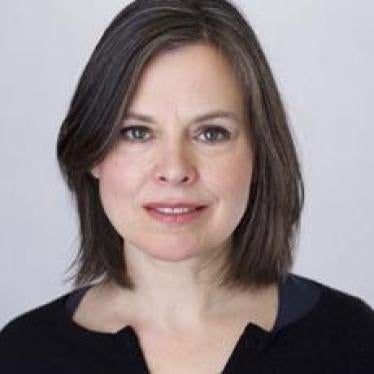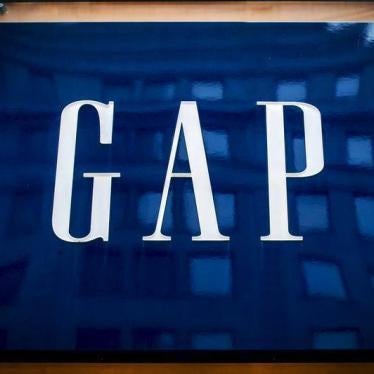Turkey's standing in the region is growing, but its international credibility should be in doubt as long as it fails to address its human rights record, especially in regard to the large Kurdish minority.
There has been much discussion in the U.S. and European media of Turkey as a rising star after its recent stance on Syria and its general support for the "Arab Spring."
Turkey is viewed as the successful merger of Islam and modernization. The Muslim religious coloring of the ruling Justice and Development Party is not seen as being at odds with its democratic, pro-Western outlook. The government has won popular support in the region, with Prime Minister Recep Tayyip Erdogan greeted rapturously on his recent tour of Tunisia, Egypt and Libya. Turkey's vibrant economy contrasts with the economic crises in Europe and the United States.
But whatever the wisdom of a search for the best "Muslim" model for Arab countries, Turkey's international credibility should be in doubt as long as it fails to address its domestic human rights record.
The lack of rights for the country's large Kurdish minority remains at the top of the list. Two years ago the government announced a "democratic opening" to extend greater rights to all of Turkey's ethnic and religious minority groups, easing restrictions on broadcasts in minority languages such as Kurdish. Today the government has replaced that with an approach that bans, suppresses and jails its critics.
Turkey's Kurdish issue continues to be largely defined for the world by the government's nearly 30-year conflict with the outlawed, armed Kurdistan Workers' Party, or PKK, during which gross human rights abuses were committed by both sides and 40,000 people died.
At the heart of the issue lie restrictive laws that limit free speech, prevent the teaching of minority languages such as Kurdish in schools and require a political party to secure a whopping 10% of the nationwide vote to gain a seat in parliament. This has meant that Kurdish political parties cannot get into parliament except by standing independent candidates who can then form a minimum 20-seat party grouping once in office.
In the last three years the biggest problem has been the misuse of anti-terrorism laws to bring criminal charges against many ordinary people who engage in legitimate and nonviolent pro-Kurdish or leftist political activity. This crackdown also includes journalists, and it threatens the very fabric of human rights and democracy in Turkey.
Thousands are on trial for membership in the Turkey Assembly of the Union of Kurdistan Communities, or KCK/TM, alleged to be the PKK's urban wing. Most of the defendants are activist members, officials and serving elected mayors of the legal Peace and Democracy Party, which formed a group in parliament after winning 36 seats as independents in the June general election.
Several defendants are with local branches of the Human Rights Assn., including Muharrem Erbey, head of the Diyarbakır branch, who has been imprisoned for two years awaiting trial. Among the more than 1,000 in prison awaiting trial are 40 lawyers. One is Veysel Vesek, active in fighting for justice for families of the thousands of Kurdish citizens who disappeared or were killed by state perpetrators, such as the Turkish security forces, in the early 1990s at the height of the conflict with the PKK. Abdulcabbar Igdi, a local human rights defender in the southeast town of Cizre, is also in prison. I have worked closely with these people, and their imprisonment is a serious setback for the human rights cause in Turkey.
A new low came in November with the arrests of Ragip Zarakolu, an internationally known publisher and human rights defender; Busra Ersanli, a political science professor who had been advising the Peace and Democracy Party on constitutional reform, and Ayse Berktay, a vocal peace activist.
What is the evidence against all these people? It is mostly wiretaps and information about their political organizing. In most cases there is no evidence of any activity that should or could be described as terrorism. Yet the widely drawn and vague nature of Turkey's terrorism laws gives zealous prosecutors and judges the ability to imprison and try them as if they were armed members of the PKK.
On Nov. 28, in Izmir, 25 trade union officials and members of a public sector workers' union confederation were sentenced to six or more years in prison. The court had heard no evidence that any had incited violence or been involved in activities that could constitute terrorism.
There also are dozens of journalists in prison on terrorism charges. Their "crimes?" In most cases writings that have not incited violence. In the case of Ahmet Sik, it involved an unpublished manuscript.
There is an urgent need to revise these flawed, sweeping laws, which make criminals out of the wrong people. But legal reform isn't enough. The government needs to stop silencing Kurds and other critics.
There is little sign, however, that change is coming. The prime minister and interior minister have repeatedly supported the arrests as the way to defeat the PKK, unconcerned that the democratic process in Turkey may be the principal victim of the crackdown. More chillingly in a climate of mass arrests, the prime minister demonstrated his intolerance of debate when he warned after the arrest of Zarakolu, the publisher, and Ersanli, the professor, that those who criticize such arrests should scrutinize themselves.
The U.S. and European governments support Turkey's efforts to combat the PKK, but they have been all but silent on the crackdown on legal Kurdish politics. Turkey's 3-decades-old policies of ban, suppress and jail have failed to solve the Kurdish issue. The U.S. and Europe also should remember that a vibrant economy and popularity in the region are no substitute for basic rights. Without the latter, Turkey risks descent into widespread violence.
Emma Sinclair-Webb is a Human Rights Watch researcher working on Turkey.






